I spent years wondering why the supposedly-awesome coconut oil for skin wasn’t cutting it for the dry skin on my face. It was SO frustrating! This discovery totally rocked my world, and I’m still using it daily, 5+ years later.
Huge thanks to Wilder Supply Co. who asked me to try some of their skin care products and originally sponsored this post. (All sponsored partnerships on this site are 100% my own thoughts, and I only publish work for products/companies I’ve personally tried and love.)
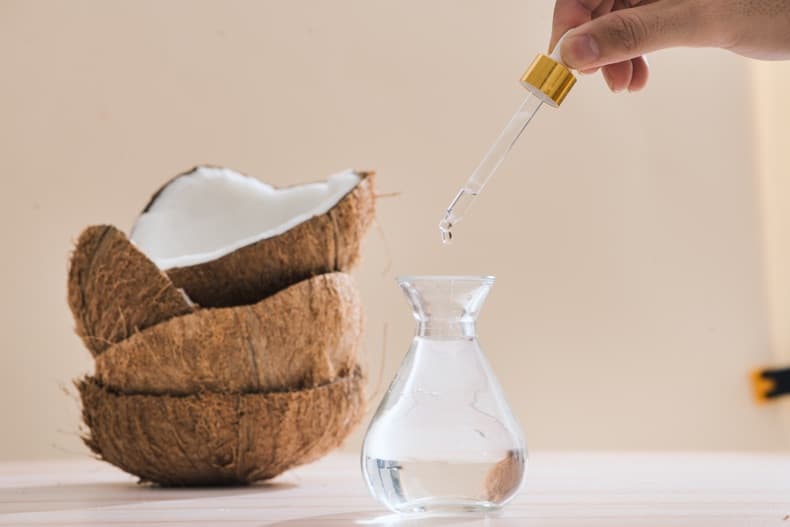
Written by: Beth Ricci
Every winter without fail, I get terribly dry skin on my face. The day after the we turn on the furnace for the first time in the fall, it starts. My face – especially in my T-zone – gets itchy, dry, and flaky. After my shower, it feels tight and awful, like that feeling you get when wearing a face mask that has dried and is ready to wash off. I do not appreciate this facet of my undeniably otherwise-flawless beauty. 😉 Not cool, face, not cool at all.
So what’s a natural living, crunchy mama to do?
[Enter, stage left, hero character]
Does Coconut Oil for Skin Actually Work?
Coconut oil is the darling of the natural living crunchy community. Every real food blogger worth their (unrefined sea) salt will tell you that there are literally hundreds of ways to use the stuff, from making delicious baked goods, homemade toothpaste, or eye makeup remover, to lubricating your you-know-what and using it as a massage oil in the bedroom.
Ever seen My Big Fat Greek Wedding? Remember how Windex is the cure-all? Same idea, less hilarious and more natural.
It’s commonly claimed that using coconut oil for skin is the Awesomest! Moisturizer! Ever! too. For years I kept some in a little sealed container in my bathroom, carried it in my purse, and even packed it for trips, just so I could swipe a little out with my finger to help moisturize my dry skin. It worked… sorta, but not great. I also tried jojoba oil for a while (holy expensive, batman). It was better, but still not awesome.
The Ideal Moisturizer for Your Skin, According to Research
According to this recent study on moisturizing products for dry skin, the ideal moisturizer will have the following attributes:
Reduce and prevent further TEWL (trans-epidermal water loss)
Restore lipid barrier, i.e., duplicating and enhancing the skin’s moisturizing retention mechanisms
Hypoallergenic, non-sensitizing, fragrance free, non-comedogenic
Absorbed immediately, providing immediate hydration
Cosmetically acceptable
Affordable.
How I First Learned About Coconut Oil Alternatives
My life was forever changed when an email landed in my inbox from Hannah at Wilder Supply Co. (Update September 2016: Wilder was formerly called Taproot Farms. Same great company, different name.)
(Seriously though – if any face moisturizer could be called life-changing, it’s this one.)
Wilder Supply Co. is a family-owned business located on an off-grid homestead in Chickaloon, Alaska. They offer a variety of products including lip balm, face/body oils, shea butter, perfume, and goat milk soap (made from fresh goat milk from the family homestead).
[annnd… now cue the dramatic music]
She wanted me to review some skin care products from their shop. I was all like, OK, sure, sounds fun. I was tired of using coconut oil for skin and being disappointed. Little did I know that my face moisturizing routine as I knew it was about to be forever changed.
I tried a few different products: a peach lip balm which works beautifully, and a sandalwood goat milk handcrafted soap – smells incredible, feels totally luxurious in the shower. I LOVE the silky smooth feel of it.

Then… I tried the Moroccan Argan Oil.
Backstory: when Hannah asked me what I’d like to try from their shop, I mentioned that the argan oil looked interesting (I had never heard of it before) because I had suffered from dry, itchy skin on my face for so long, and my current coconut oil for skin routine was not really cutting it.
This was followed by a discussion of the various oils and some brilliant explanations from her which pretty much explained everything as to why the other oils hadn’t worked for me. Here’s what I learned from her, and from my own rabbit hole of research that blew my mind:
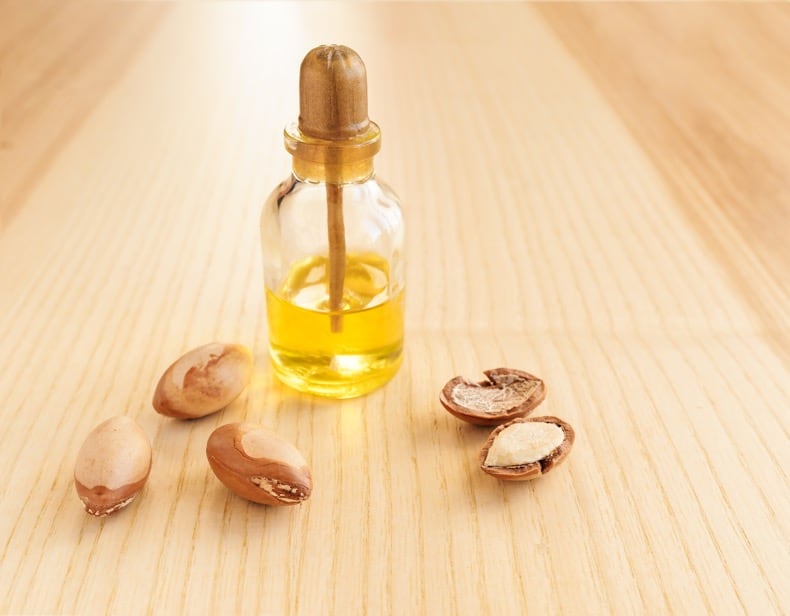
What Does the Scientific Research Show About Argan Oil and Coconut Oil?
Well, first of all – the body of research on plant oils for therapeutic skin purposes is fairly small. Unfortunately, the laws in the United States on what skincare and cosmetic companies are allowed to include in their products are extremely loose. The U.S. only bans 11 ingredients, which is in stark contrast to the 1,328 chemicals banned by law in the European Union (28 countries). Canada’s laws are similarly strict to the E.U. with hundreds of ingredients banned.
According to the Campaign for Safe Cosmetics, the E.U. also requires safety assessments on all products prior to being sold, whereas the U.S. does not. They point out that “the hazard-based, precautionary approach of the E.U. acknowledges that chemicals linked to cancer and birth defects simply don’t belong in cosmetics – regardless of the concentration of the chemical being used.”
What does this all mean? It means that the biggest cosmetic brands (the ones who could afford to fund studies) have little need to do so, and wouldn’t want to anyway, because the results on their products wouldn’t be good.
Here’s What we DO Know, Based on What’s Available:
- According to this 2013 study on jojoba in dermatology, jojoba oil isn’t actually an oil. It’s a wax ester that is very similar to the skin’s natural sebum. So, while it feels really nice on the skin (and worked better than coconut oil for me), it can’t soak in to the layers of the epidermis and moisturize as effectively as an oil like argan.
- Coconut oil for skin is a very light moisturizer that sinks in quickly, which appeals to a lot of people because it doesn’t leave a greasy feeling on the skin. It works well for some, but not those with very dry skin. This 2019 study found that coconut oil was effective as an emollient (softening skin) but that it was not found to leave an effective barrier to seal in moisture (aka “occlusive” – for the “most occlusive” example, think of petroleum jelly leaving a thick layer on skin). Dry skin needs something more occlusive than coconut oil, but less so than petroleum jelly (not a product I recommend, for the record).
- According to Table 1 in this study, coconut oil is not considered an effective occlusive (protective barrier), emollient (softens rough skin), or humectant (draws moisture). That same study points out that it does have excellent anti-bacterial and anti-fungal properties, so if you don’t have very dry skin or acne-prone skin (see comedogenic note below), it may be a great choice for you. (It’s also worth noting that other studies do refer to occlusive and emollient effects of coconut oil, and I’m sure there’s truth to that, however other plant-based oils seem to be referenced as more effective in this regard.)
- According to this comedogenic chart, argan oil is non-comedogenic with a rating of 0, so it won’t clog your pores.
- Conversely, coconut oil is listed with a rating of 4 (which means it can easily clog pores). That doesn’t bother many people, but if you have a tendency to get clogged pores (blackheads, acne breakouts, etc), coconut oil may exacerbate that problem.
- It is worth noting that the concept of comedogenicity requires more research before we can draw too many conclusions. Still – anecdotally, many people report that coconut oil just doesn’t leave their skin feeling hydrated (like me), or it leads to acne breakouts (hence the comedogenicity discussion).
- To sum up my own experience – while jojoba oil provided a protective layer without sinking in well, and coconut oil sinks in but doesn’t leave much of a protective layer, argan oil does both (see research below), making it more effective overall.
- In this 2014 study involving 60 women, the researchers concluded that argan oil improved skin hydration by restoring barrier function (keeping irritants, microbes, and allergens out) AND maintaining the water-holding capability (keeping moisture in).
- A follow-up study in 2015 by the some of the same researchers concluded that argan oil has an effective anti-aging effect by significantly improving skin elasticity.
So while coconut oil might work well for people who have skin in the middle of the spectrum (generally non-problematic skin), it doesn’t usually work great for those of us who tend to have dry or oily skin issues.
 My Personal Experience with Argan Oil
My Personal Experience with Argan Oil
As soon as I got the package in the mail, I started using the argan oil every morning, especially after a shower (I don’t shower every day – it helps to avoid drying the skin too much)
I dab a few drops on my driest areas (right between my eyebrows, forehead, around the base of my nose) and massage it in. It literally only takes a few drops, and my skin drinks it up thirstily.
It is especially effective if I give my face a quick, gentle exfoliation first. In the shower, I just gently scrub my face with a washcloth and it works great. I don’t feel a need to buy special products, or to be particularly harsh with scrubbing. It’s also most effective when applied to damp skin because your pores are more open.
Since using the argan oil, I have noticed an absolute 100% improvement in the way the skin on my face feels on a daily basis. That tight, dry feeling is gone!
As far as I can tell, the results are long-lasting too, because on the days I don’t shower, I sometimes don’t even use the oil because my skin is still happily moisturized from the day before.
It’s incredibly effective (this is about as close to defining something as a miracle product as I’ve ever gotten) and it’s frugal too, considering how little of it you need at a time. At the risk of overstating my case, to be honest, I am utterly blown away and thrilled with this product. Truly.
Now, not only does it work well and not cost me an arm and a leg (side note: yes, the price seems high at first glance compared to drugstore junk, but my first bottle lasted me almost four years!!), but consider these amazing factors as well:
Interesting Facts About the Origins and Production of Argan Oil:
- Argan oil is one of the rarest, most highly-valued oils in the world (source). It is a plant-based oil that comes from the Argan tree, which is exclusive to Morocco. It is called the “tree of life” there, and it has been used by locals for centuries.
- Every part of the plant is utilized: “Getting oil from the fruit of the argan tree involves drying it, extracting the nuts, cracking them to reveal the kernels, and pressing them to release the oil. The byproduct of pressing is a thick argan paste, which is sold locally for cosmetic products. Nothing else is wasted, as the outer pulp provides food for village animals, while the shells are burned for fuel.” (source)
- The process of extraction and selling this oil is done in a sustainable fashion. Almost all Argan oil is distributed by local co-operatives of women in Morocco (source). To this day, the most efficient method of extraction is hand-pressing the kernels, which provides valuable jobs to women in the country.
What are the Health Benefits of Argan Oil?
- Argan oil has incredible health benefits. According to this study, it’s rich in fatty acids and Vitamin E, which are both traits held in high regard in the beauty industry. The industry often adds synthetic versions of these things to products to be able to market them as anti-aging and healing, but of course, the natural (non-synthetic) version is far superior.
- According to the same study, “daily topical application of argan oil has also been shown to improve skin elasticity and skin hydration by restoring the barrier function and maintaining the water-holding capacity. Additionally, topical applications onto skin provide a softening and relaxing effect on the skin.”
- This study discusses multiple amazing health benefits of argan oil beyond skin moisturizing, including UV protection, and even cancer prevention (yes, really!)
The Bottom Line?
I first wrote this post in 2013, and it has been viewed nearly four million times since. There has been some pushback to criticism of our beloved coconut oil (of which I’m still a huge fan – I use it all the time for cooking, and a few other things!) but overall, I have heard from a ton of others who were relieved to know that they weren’t the only ones struggling with coconut oil for skin as a moisturizer!
I still use and love my argan oil to this day – I get mine from the same company: Wilder Supply Co. (<– get a special R&H discount through that link). I trust their quality.
They’re a small family business that prides itself on offering natural, affordable products of exceptional quality. They also value sustainability and top-notch service, which pretty well makes them my ideal company.
Related:
What do you use to moisturize your skin? Have you tried argan oil?
Sources:
- Sethi, A., Kaur, T., Malhotra, S. K., & Gambhir, M. L. (2016). Moisturizers: The Slippery Road. Indian journal of dermatology, 61(3), 279–287. doi:10.4103/0019-5154.182427
- Pazyar N, Yaghoobi R, Ghassemi M.R, Kazerouni A, Rafeie E, Jamshydian N. (2013). “Jojoba in Dermatology: A Succinct Review”. G Ital Dermatol Venereol , 9(1): 5–14. doi: 10.1016/j.jtcme.2017.06.012
- Varma, S. R., Sivaprakasam, T. O., Arumugam, I., Dilip, N., Raghuraman, M., Pavan, K. B., Paramesh, R. (2018). In vitro anti-inflammatory and skin protective properties of Virgin coconut oil. Journal of traditional and complementary medicine, 9(1), 5–14. doi:10.1016/j.jtcme.2017.06.012
- Chularojanamontri, L., Tuchinda, P., Kulthanan, K., & Pongparit, K. (2014). Moisturizers for Acne: What are their Constituents?. The Journal of clinical and aesthetic dermatology, 7(5), 36–44.
- Draelos Z.D, DiNardo J.C. (2006). A Re-Evaluation of the Comedogenicity Concept. Journal of the American Academy of Dermatology 54(3):507-12. doi: 10.1016/j.jaad.2005.11.1058
- Boucetta, K.Q, Charrouf, Z, Derouiche, A, Rahali, Y, and Bensouda, Y. (2014). Skin Hydration in Postmenopausal Women: Argan Oil Benefit with Oral and/or Topical Use. Menopause Review 13(5): 280–288. doi: 10.5114/pm.2014.46470
- Boucetta, K.Q, Charrouf, Z, Aguenaou, H, Derouiche, A, and Bensouda Y. (2015). The Effect of Dietary and/or Cosmetic Argan Oil on Postmenopausal Skin Elasticity. Clinical Interventions in Aging 10:339-49. doi: 10.2147/CIA.S71684
- Lin, T. K., Zhong, L., & Santiago, J. L. (2017). Anti-Inflammatory and Skin Barrier Repair Effects of Topical Application of Some Plant Oils. International journal of molecular sciences, 19(1), 70. doi:10.3390/ijms19010070
- Villareal, M. O., Kume, S., Bourhim, T., Bakhtaoui, F. Z., Kashiwagi, K., Han, J., … Isoda, H. (2013). Activation of MITF by Argan Oil Leads to the Inhibition of the Tyrosinase and Dopachrome Tautomerase Expressions in B16 Murine Melanoma Cells. Evidence-based complementary and alternative medicine : eCAM, 2013, 340107. doi:10.1155/2013/340107

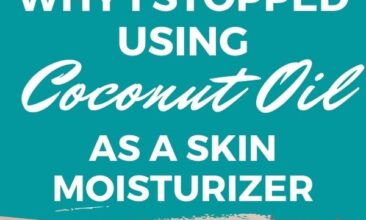

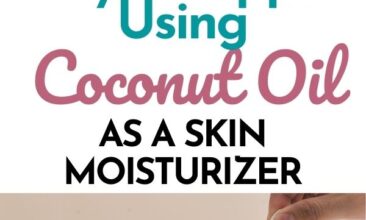
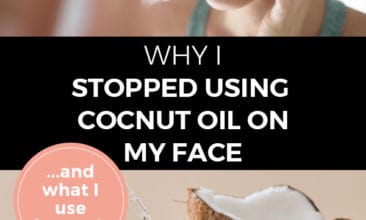
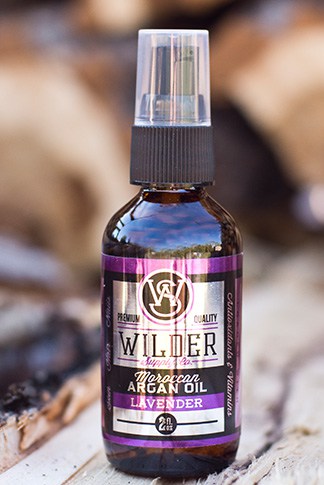 My Personal Experience with Argan Oil
My Personal Experience with Argan Oil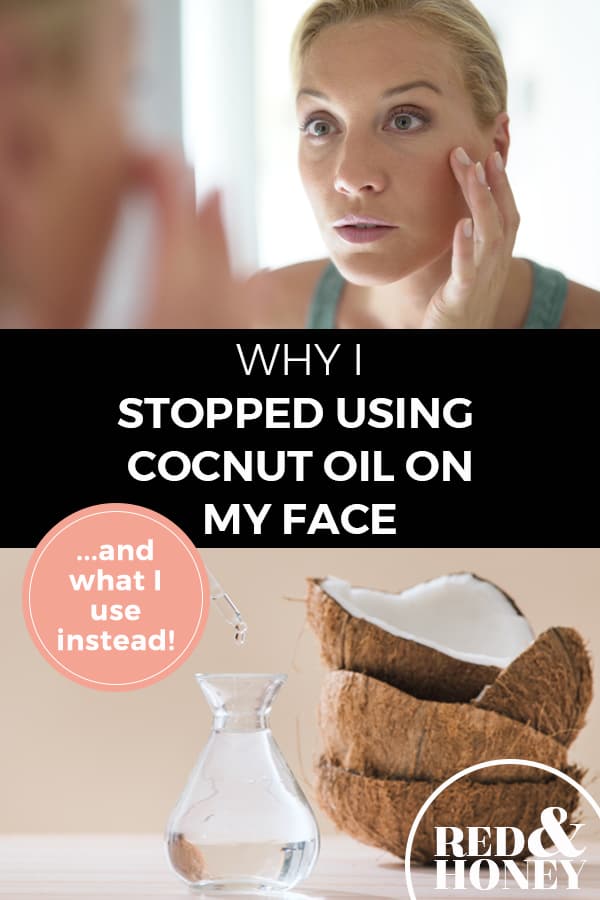






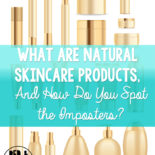
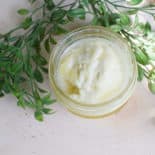



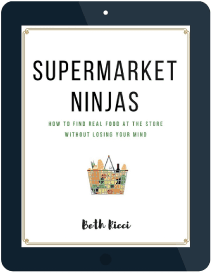
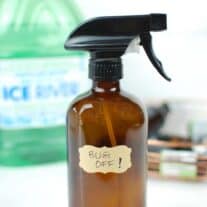


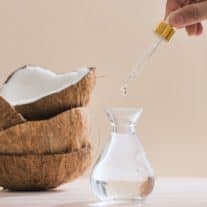



mumu
I m using coconut oil, olive oil, almond oil and some vitamin e.. It actually works good in my skin. Even it helps me to reduce my my acne scar. But I make coconut oil in my home with our own coconut fruit.
Ferris
Need to try this 100% pure Moroccan Argan oil My skin needs it desperately
Brittany
Any suggestions for a very moisturizing oil to use for the whole body? I have absurdly sensitive and dry skin, and it’s EVERYWHERE, so an expensive oil like Argan isn’t going to work (as lovely as it sounds!). I use Eucerin and it helps a bit, but I’m trying to go more natural, and Eucerin is pretty darn expensive too, especially when you go through it as fast as I do.
Based on the comments I think I’m going to try olive oil next, but any suggestions would be really appreciated!
Busi
Hi,
Try a mixture of olive oil and coconut oil, if that doesn’t work for u try mixing Eucerin with olive oil. Or any other body butter/lotion with a generous amount of olive oil usually does the trick…
shnid
Have you tried putting a spoon of oil in a bath? I use coconut oil in the bath for dry skin on my back and legs
Brooke McW
In my bath I put Epsom salt, baking soda, coconut oil and a couple of drops of whatever essential oils I want to put in (lavender, citrus, stress away, ect. I usually mix up some in a concoction of smell good happiness lol) Its great though, you come out of the bath feeling great and you sleep awesomely. I would love to try Moroccan Argan oil.
Clara Golding
I have a skin disease call scleroderma and us with this disease we are alwasy searching for product not only help our skin for moisture but also from itching. Iam not sure how you are connected to Taproot Farms, maybe possibly you would be willing to send me sample to try and I could inform the Schleroderma Foundation and the support group that I belong to about your product/s. Thank you so much for reading this email.
Clara Golding
Keidre Raeanne Shaw
If you aren’t allergic to nuts & dont have bad acne breakouts; use coconut oil or vitamin E oil with pure, pharmaceutical grade peppermint oil in it.
I suffer from chronic hives and have awful dry skin; and itch until my skin breaks. (I know…”I shouldn’t”, it’s hard to stop once it starts)
At nighttime I’ve been putting something similar to lanolin on after the oils & in the morning it’s pretty much faded.
Vitamin E is great, although as you put it on, it seems to draw out the redness. I have it pure with Vitamin C added. I bought it for $7@ Publix
Coconut oil does leave skin feeling softer. (Get unrefined, organic, cold pressed) This usually costs $10-$16
The peppermint oil will be the most expensive. Stores sell the crap kind for $10….pharmaceutical grade will cost around $25. I have Young Living and it’s 26$- a little goes a loooong way. Peppermint will help cool the inflammed skin and stop the itching.
Miriam
I will give Argan oil a try. I have oily skin, and haven’t used moisturiser for years. I recently made my own moisturiser, coconut oil, olive oil and some others. I put some on one morning and then put my home made powder on, later that day at work I was at a meeting, I was asked if I was hot, it was a hot day. Later I looked in the mirror and noticed streams of muddy streaks running down my face. That was the last time I used the coconut oil moisturiser in the mornings. I still use my natural, mineral free face powder. Now I rub some of my home made hair gel on my face in the morning (gelatine, and EO) the gelatine is a natural collagen, it is a little drying at first but then feels great
Emily
I mix 1 part argan oil with 1 part shea butter for the world’s simplest, best moisturizer!
Johanna
Hi! Do you use this combo on the face? And if so, do you ever struggle with clogged pores? I got the Argan oil and so far I like it, but I wouldn’t mind something a little more lotion-y
Kim
Interesting article, I’m forever reading up on oils for an eczema laden boyfriend, but I hadn’t thought of trying argan oil – I only know of it for for dipping into pittas! It’s got some pretty decent evidence for cancer-prevention and reducing cardiovascular problems when ingested – and contrary to the comments about it being endangered – argan oil is usually produced by woman’s co-operatives pretty sustainably and with some great impacts on their social and economic status (I know cos I have to supply chain track at work!) I’m going to buy some and give it a whirl on the boyf – cheers!
Honore
Oils are a carrier so your meant to moisturiser afterwards.
Kyan
Hi Friends…Thanks for the great info about Argan Oil….will try it for my face also….does it help to remove adult acne?
I am over 50 and I have some red bumps on my face like adult acne…so will this Argan oil help older adults with adult acne…
will this oil get rid of the acne completely or is there something else for this condition of adult acne…
My skin looks & eyelashes & hair are thicker when I take Flax oil internally but the acne did not go away…I never put it on my face so not sure if it would help the face to remove the acne bumps…anyone here use flax oil on the face? Used to take Coconut oil internally but it caused acid reflux after awhile so I stopped using it…as coconut oil may not agree with everyone…I have learnt that not every agrees with everyone…we need try it to see if it agrees with us or not…it is not for everyone…some oils may be good for someone here and not good for their friend or family member as they need to try it on themselves first…
I used to use Seabuckthorn oil in the past for about 2 years then started getting acne clogged pores bumps on my face…
Then I tried olive oil on the face & it felt a bit greasy on my face…& the acne was still there…I still love to use olive oil in my food daily…Right Now I am using Vit E oil in a dropper bottle on my face the kind that people take internally as a supplement…my face glows & looks younger when I apply it…but it could also be blocking pores as the acne is still there….none of these oils removed the acne…What else can I do to remove this adult acne? I only wash my face with water and sometimes us baking soda to wash my face, is there something I can use to wash my face that would remove the adult acne…Will the argan oil heal the acne & also
moisturize at the same time?
Thank you friends for the great posts & info about all the different oils 🙂
Beata
Hi I just both that argon oil for my face yesterday September 15/2014 ,I don’t know yet if is working but I like it I put that oil on my face when I went sleep and in the morning i don’t have to washed my face .
Kelly Smith
I have been using this amazing and incredible Argan OilI on regular basis and I cannot tell you that how much this anti wrinkle product blessed me. It gave me beauty, attraction and perfection. It removed all bad signs of wrinkles, furrow lines and dark circles around eyes from my face.
Jen
This sounds great but too bad the Argan Tree is endangered 🙁
Parker
Nice post, I’m Jamaican and it’s really very informative for me. I currently use coconut oil at night. I feel to use this to help me for extra glow of my skin and also remove my daily makeup and I even use it when I’m not wearing makeup. This oil provides my skin with a really healthy looking glow and it keeps my skin hydrated and soft. I also still use this as my body lotion daily. Please suggest me some other herbal and organic ideas for Cruelty free makeup as comparable like coconut or other relevant nature ingredient made products.
Coconut Milk Recipe
Holy crap, thanks so much for posting this! It is gonna aid me when I order Coconut Milk at the market! So Magnificent!
Ariane
Aha ! Mystery solved as to why I have blackheads all over my thighs after switching to coconut oil a couple of weeks ago… I’m excited to try Argan oil for my face.
Suzy
I have always had very dry skin and find argan oil works wonders on my long, thick hair and scalp, Bio oil every where else and treat myself to coconut shea body butter a couple of times a week after a bath; I can’t resist the smell and using it in that formula it has never dried me out. I use the argan and bio oil morning and night and always get compliments and questions, you would never think I had very dry skin!
Suzy
Yaya
I have teRrible acne and I have trouble finding a moisturizer that helps. I’ve been using coconut oil but it might be making my situation wOrst because it’s fairly comodogenic as mentIoned in the post. Just started mixing it with jojoba oil to see if that helps but now I’m curious about trying argan oil out and to see if that works. Do you have any recommendations for acne prone combinaTion skin?
Bobbie
Thank you for the argan oil tip, I’m going to look in to it. But I had another question. What would you recommend for prevention of stretch marks that is also natural for the skin?
Mahatma Paul
Thank you so much for posting this! I’ve been trying to switch over to all natural products and coconut oil, while making my skin smooth, does nothing to seal in the moisture! I’ve applied right out of the shower like everyone suggests and within the half hour of applying, my skin appears dry and cracked as if I didn’t put any moisturizer on at all. I eventually have to put on commercial lotion again and it really bothers me that this product that seems to work wonders for everyone else doesn’t work for me 🙁
I will definitely give Argan Oil a try though. I want to be able to throw out my commercial lotions.
BettyMel
Unfortunately, I have the same problem! I really want to be able to use natural products, but every time I stop using my commercial face moisturizer to try the natural products, I end up with little pimple like bumps on my face (not like acne though) and my skin starts to feel more leathery. I also notice that my crowsfeet become more noticeable. I always end up going back to using the commercial one too 🙁
Melissa
I have the same issue. Coconut oil dries my skin out terribly. Like to the point of flaking off.
Liz
Hello, just want to ask a question here. I only read that you’ve been using coco oil on your face, but how about on the body? Does coco oil work well for very dry skin on the body? I have been using some only on my body & was wondering if you meant doesnt work well for dry face. Thank you.
beth@redandhoney
I don’t use coconut oil on my skin anymore at all because of the reasons I outlined in the post. Argan oil is great for all over!
Shaina
I want to thank you for the great post! I have been using coconut oil for a while now but it doesn’t seem to help my combo skin, which gets dry so I think it overproduces oil to compensate. I have read about Argan oil a few times and every time I search for it online (because the store-bought stuff isn’t pure) they want $30-$40 for a small bottle. Being a broke college student can’t afford that but I CAN afford $14, so thank you for letting us know a place that is reasonable! (:
– Shaina
Beth
Hurray! I’m so happy that you found this post – having dry skin really sucks, and I was getting so frustrated with the coconut oil, too. I don’t know if you have ordered some argan oil from Taproot or not, but if you haven’t done so – make sure you click on the ad at the top of my sidebar right now – they are sponsoring my site this month and next, and have set up a fantastic discount offer for R&H readers! 🙂 🙂 🙂